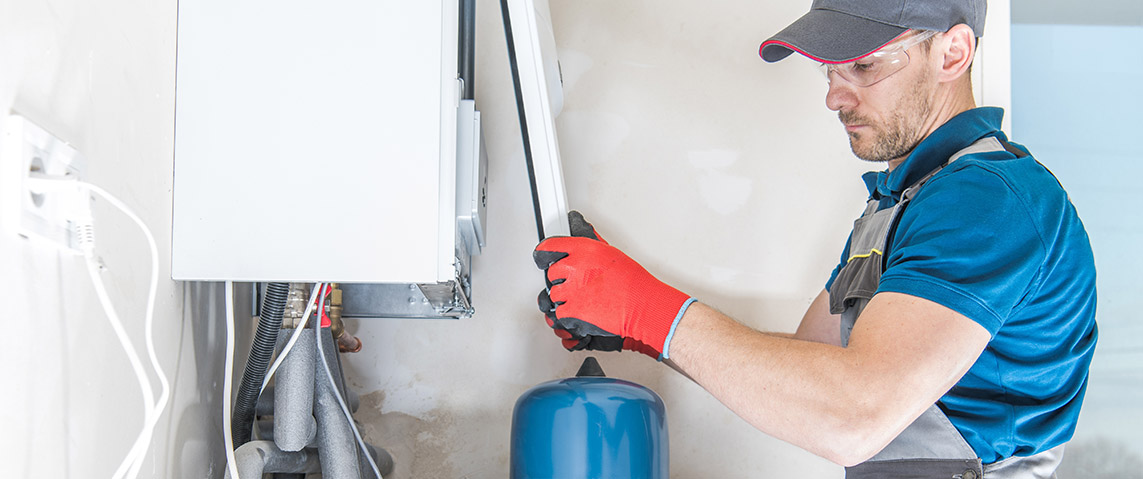A Guide to Boiler Safety

In this post, we'll cover
Carbon monoxide is known as the “silent killer” as it does not have an odour and is something that can be released by a faulty boiler. The NHS states that up to 50 people a year are killed by carbon monoxide poisoning.
You can help to protect yourself against carbon monoxide poisoning by having all gas appliances checked on a yearly basis.
Do gas boilers have risks?
Gas central heating systems need to be looked after and serviced as otherwise they may pose a safety risk to your home. Faulty boilers, or those with blocked or leaky flues, can release the poisonous gas carbon monoxide.
Is carbon monoxide present in my home?
As carbon monoxide has no colour or smell it can be extremely difficult to spot when there is a leak. Carbon monoxide detectors can be purchased from many stores and online too for your safety. These work very much like smoke detectors and can be fitted in the home. When purchasing a carbon monoxide detector check that it has the British Standard BS7860 printed on the packaging. Please note that they are only warning devices however and should not be used instead of regular servicing.
Signs which may point to carbon monoxide leakage include:
- The pilot light struggles to stay ignited.
- A blocked flue.
- Flames burning orange or yellow instead of blue.
- Black/sooty marks on or above the boiler.
- Symptoms of carbon monoxide poisoning
These include drowsiness, headaches, nausea, dizziness and chest pains. Make sure there is plenty of ventilation in the room where the boiler is situated.
Carbon monoxide is a tasteless and odourless gas that is difficult to detect. For those who are exposed to high levels of carbon monoxide there is a risk of death by asphyxiation.
If I think my boiler is not functioning properly what should I do?
Make sure you get a qualified and registered Gas Safe engineer to come and inspect the boiler. Under no circumstances should you attempt to make any fixes yourself.
The Health and Safety Executive recommends:
Anyone employed to work on gas appliances in domestic premises must be a Gas Safe registered engineer and competent in that area of gas work. The gas engineer's competencies are clearly marked on the back of the engineer's Gas Safe Register ID card. If in any doubt you can ring Gas Safe Register 0800 408 5500 or check their website to see if the engineer is registered.
http://www.hse.gov.uk/gas/domestic/faqownerocc.htm
Regular maintenance
Regular maintenance (once a year is recommended) helps to keep your boiler functioning and safe for you and your family. This will help to keep any unwanted breakdowns.
For Peace of Mind Get It Covered
Boilers are more prone to a break down during the winter months, but don’t wait until a break down occurs to arrange cover. A qualified boiler engineer can be costly to arrange and in most cases does not include parts, labour or an out of hours call out fee. That’s why with Home Emergency cover, your boiler break down is covered and also includes an annual boiler safety check. This offers you real peace of mind during what can be a stressful and expensive situation.
Boiler cover insurance typically includes benefits like 24/7 emergency assistance, annual boiler servicing, and coverage for the cost of repairing or replacing a malfunctioning boiler.
Explore the importance of boiler insurance and determine if it's a necessity for you. Learn about the potential risks and benefits of boiler coverage, ensuring you make an informed decision about protecting your home's heating system. Discover whether boiler insurance is a vital safeguard for your peace of mind
Discover the expected lifespan of a boiler and factors influencing its longevity. Learn about maintenance practices and key considerations that impact the duration of a boiler's efficient operation. Ensure you make informed decisions about your heating system by understanding how long a boiler typically lasts.

 Home Emergency
Home Emergency 
 Home Appliances
Home Appliances 
 Landlord Home Emergency
Landlord Home Emergency 





 Motor Breakdown Cover
Motor Breakdown Cover 


 Infotainment
Infotainment 

 Home Emergency Insurance
Home Emergency Insurance Home Appliance Insurance
Home Appliance Insurance Landlord Home Emergency
Landlord Home Emergency TV Brands
TV Brands